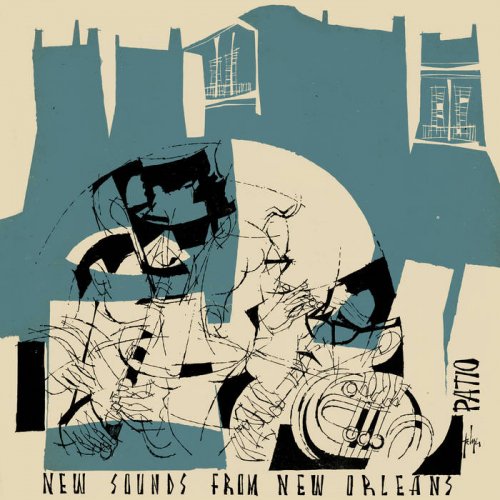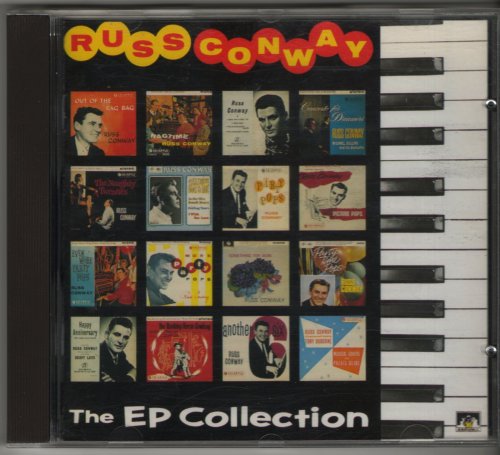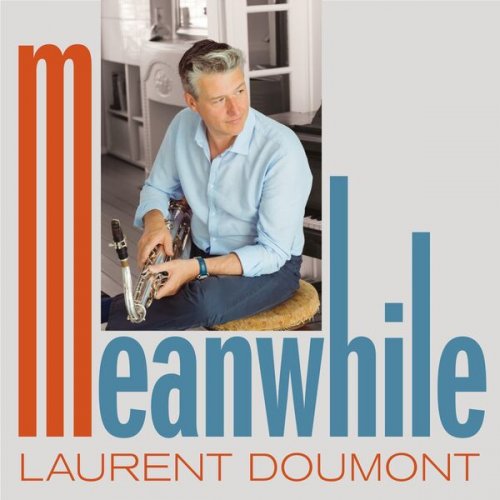Mouse Bonati Sextet - Mouse's House (1957)

Artist: Mouse Bonati Sextet
Title: Mouse's House
Year Of Release: 2018
Label: Numero Group
Genre: Jazz
Quality: FLAC (tracks)
Total Time: 12:45
Total Size: 50.7 MB
WebSite: Album Preview
Tracklist: Title: Mouse's House
Year Of Release: 2018
Label: Numero Group
Genre: Jazz
Quality: FLAC (tracks)
Total Time: 12:45
Total Size: 50.7 MB
WebSite: Album Preview
01. Back (2:29)
02. One Blind Mouse (2:45)
03. Mouse's House (2:42)
04. Improvisation (2:05)
05. What a Difference a Day Made (2:44)
Prime time New Orleans bebop. Never listened to bebop before? There are worse places to start.
The most popular jazz in post-War New Orleans was ostensibly a revivalist affair—Pete Fountain and the Dukes of Dixieland sold millions of records with their Dixieland and traditional jazz retreads. While concurrently proving itself one of the nation’s great, vital R&B powerhouses, New Orleans’s glory years at the leading edge of jazz were decades old by the time of bebop’s ascendance in the ‘40s.
Despite the city’s general apathy about this new, modern permutation of jazz (a generalization fairly leveled at any city not among Great Migration destination points), New Orleans did have its bop devotees, many of whom convened to jam in the late ‘40s and ‘50s at French Quarter nightclubs and strip joints. Places like Louis Prima’s 500 Club, the Gunga Den and the Sho’Bar employed these young enthusiasts as pit musicians, and served as primary loci for the after-hours sessions where the form took root in the city. Saxophonist Joseph “Mouse” Bonati would be one of the earliest and most visible champions of bop. Little, unfortunately, in the way of New Orleans bebop was recorded in its time, but Mouse Bonati figures prominently in discussions about modern jazz in New Orleans.
Born in Buffalo, New York, in 1930, Joseph “Mouse” Bonati was the youngest of five musically- and artistically-inclined brothers and sisters. The young Joe, evincing the family’s musical and artistic talents, played the violin, receiving the standard classical-oriented musical education of the era. In the late ’40s, barely out of his teens, playing saxophone and enamored of both jazz and—like so many other young musicians—of Charlie Parker, Mouse Bonati moved to New Orleans.
Mouse Bonati’s New Orleans sides—all released by the tiny Patio Records—represent some of the earliest bebop recorded in the city. Recorded in a single sitting in 1957, the Patio sessions yielded four tracks under Mouse’s aegis. Supported by compadres Benny Clement (trumpet), Jimmy Johnson (bass), Chick Power (tenor saxophone), Edward Frank (piano) and Earl Palmer (drums), these recordings would be released sequentially on two 45s—“Back” b/w “One Blind Mouse” followed by “Mouse’s House” b/w “What a Difference a Day Made”— both showing the altoist in full Charlie Parker mode.
That same year would also see the release of the lone LP on Patio Records, an album of New Orleans bebop entitled New Sounds From New Orleans. Put together by friend and fellow musician Jack Martin, the album featured the Jack Martin Octet’s “Jazz Suite de Camera” on one side (with Bonati playing a supporting role) and Mouse Bonati’s music—his four 45 recordings, along with a multi-tracked tape experiment entitled “Improvisations”—on the other.
As the ’50s wore on, recorded music began to displace the musicians working in the Bourbon Street clubs. Local gigs became harder to find, and Mouse’s own life and personal relationships became increasingly complicated. Around 1960, Mouse relocated to Las Vegas and began his next chapter as a working musician. There would be no more commercially released recordings; the relative security of resort gigs—the lifeblood of many jazz musicians in those years—kept Mouse working. Mouse Bonati was diagnosed with cancer of the larynx in the early ‘80s, sadly making playing impossible in his final years. His a life spent in the jazz world, devoted to music. Joseph “Mouse” Bonati passed away in 1983.
The most popular jazz in post-War New Orleans was ostensibly a revivalist affair—Pete Fountain and the Dukes of Dixieland sold millions of records with their Dixieland and traditional jazz retreads. While concurrently proving itself one of the nation’s great, vital R&B powerhouses, New Orleans’s glory years at the leading edge of jazz were decades old by the time of bebop’s ascendance in the ‘40s.
Despite the city’s general apathy about this new, modern permutation of jazz (a generalization fairly leveled at any city not among Great Migration destination points), New Orleans did have its bop devotees, many of whom convened to jam in the late ‘40s and ‘50s at French Quarter nightclubs and strip joints. Places like Louis Prima’s 500 Club, the Gunga Den and the Sho’Bar employed these young enthusiasts as pit musicians, and served as primary loci for the after-hours sessions where the form took root in the city. Saxophonist Joseph “Mouse” Bonati would be one of the earliest and most visible champions of bop. Little, unfortunately, in the way of New Orleans bebop was recorded in its time, but Mouse Bonati figures prominently in discussions about modern jazz in New Orleans.
Born in Buffalo, New York, in 1930, Joseph “Mouse” Bonati was the youngest of five musically- and artistically-inclined brothers and sisters. The young Joe, evincing the family’s musical and artistic talents, played the violin, receiving the standard classical-oriented musical education of the era. In the late ’40s, barely out of his teens, playing saxophone and enamored of both jazz and—like so many other young musicians—of Charlie Parker, Mouse Bonati moved to New Orleans.
Mouse Bonati’s New Orleans sides—all released by the tiny Patio Records—represent some of the earliest bebop recorded in the city. Recorded in a single sitting in 1957, the Patio sessions yielded four tracks under Mouse’s aegis. Supported by compadres Benny Clement (trumpet), Jimmy Johnson (bass), Chick Power (tenor saxophone), Edward Frank (piano) and Earl Palmer (drums), these recordings would be released sequentially on two 45s—“Back” b/w “One Blind Mouse” followed by “Mouse’s House” b/w “What a Difference a Day Made”— both showing the altoist in full Charlie Parker mode.
That same year would also see the release of the lone LP on Patio Records, an album of New Orleans bebop entitled New Sounds From New Orleans. Put together by friend and fellow musician Jack Martin, the album featured the Jack Martin Octet’s “Jazz Suite de Camera” on one side (with Bonati playing a supporting role) and Mouse Bonati’s music—his four 45 recordings, along with a multi-tracked tape experiment entitled “Improvisations”—on the other.
As the ’50s wore on, recorded music began to displace the musicians working in the Bourbon Street clubs. Local gigs became harder to find, and Mouse’s own life and personal relationships became increasingly complicated. Around 1960, Mouse relocated to Las Vegas and began his next chapter as a working musician. There would be no more commercially released recordings; the relative security of resort gigs—the lifeblood of many jazz musicians in those years—kept Mouse working. Mouse Bonati was diagnosed with cancer of the larynx in the early ‘80s, sadly making playing impossible in his final years. His a life spent in the jazz world, devoted to music. Joseph “Mouse” Bonati passed away in 1983.


![Jan Harbeck Quartet - Arena (2026) [Hi-Res] Jan Harbeck Quartet - Arena (2026) [Hi-Res]](https://img.israbox.com/img/2026-02/21/ta1geqbunymda1vazij2b7te7.jpg)
![Joe Pass - Virtuoso (1974) [2025 DSD256] Joe Pass - Virtuoso (1974) [2025 DSD256]](https://www.dibpic.com/uploads/posts/2026-02/1771609997_ff.jpg)


![Magda Mayas' Filamental - Murmur (2026) [Hi-Res] Magda Mayas' Filamental - Murmur (2026) [Hi-Res]](https://www.dibpic.com/uploads/posts/2026-02/1771663724_i3cjtptz4ae2l_600.jpg)

![Tom Braxton - Flashback (2026) [Hi-Res] Tom Braxton - Flashback (2026) [Hi-Res]](https://www.dibpic.com/uploads/posts/2026-02/1771426129_1.jpg)